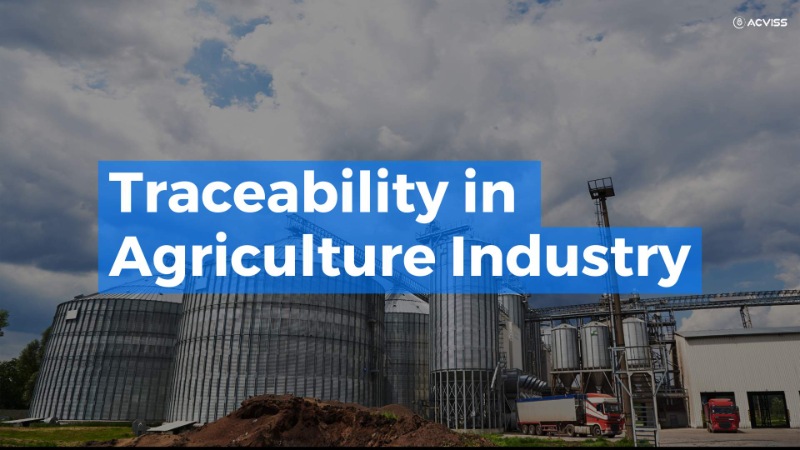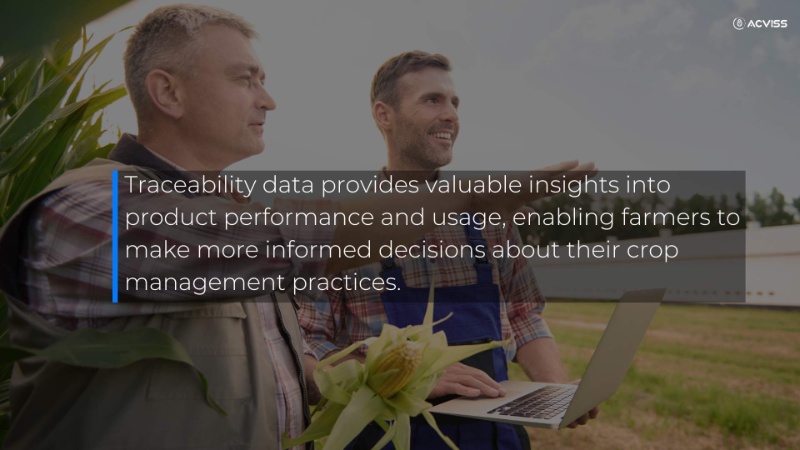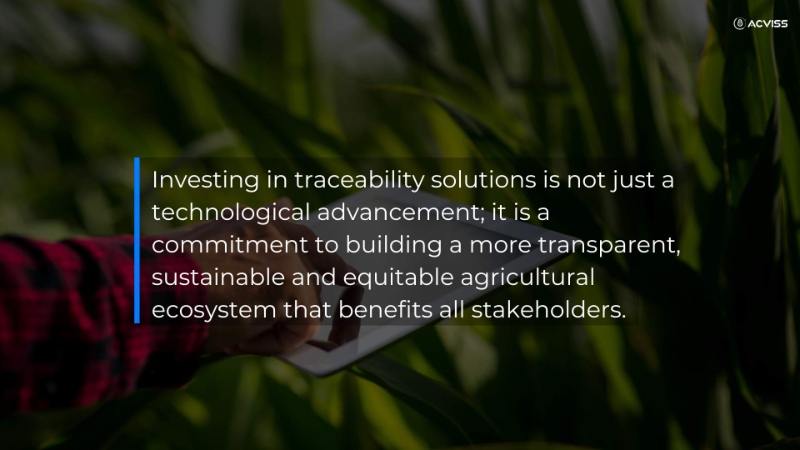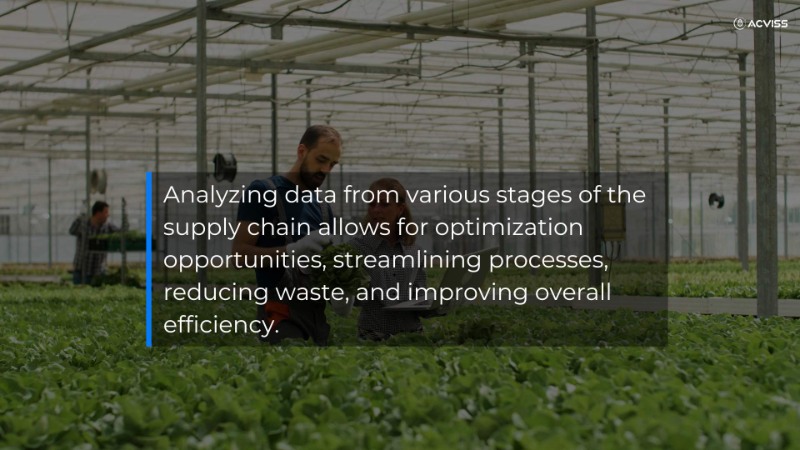Improving Product Traceability in Crop Protection and Seed Supply Chains

Traceability, the ability to track the movement of goods from their origin to their final destination, is crucial in various industries. But perhaps none more so than in the agricultural sector. The drastic innovations in the industry have made it easier to navigate the business and expand to different geographies and markets. Increasing the need for transparency and traceability in the supply chain. The end consumers, conscious of the origins and production methods of the food they consume, benefit from a transparent supply chain that empowers them to make informed choices. Farmers, too, stand to gain as traceability can aid in optimizing processes, reducing waste, and improving overall efficiency.
Contents
Challenges in the Current System
Traceability in agriculture is not merely a logistical necessity; it is a cornerstone of sustainable and ethical practices. Despite its significance, achieving comprehensive traceability in crop protection and seed supply chains remains a challenge. Here are some key hurdles:
1. Lack of standardization: Currently, there is no single, global standard for traceability in these sectors. This leads to fragmented data and incompatible systems, making it difficult to track products across different stages of the supply chain.
2. Manual data collection: Much of the data involved in tracking agricultural products is still collected manually, leading to errors and inefficiencies. This can also be time-consuming and prone to human error.
3. Limited transparency: Farmers often lack access to information about the origin, composition and use recommendations for the products they purchase. This can lead to the misuse of products and potential risks to their crops and health.
4. Counterfeiting and fraud: The lack of robust traceability systems makes it easier for counterfeit products and seeds to enter the market, putting farmers at financial risk and potentially impacting crop yields.
Benefits of Improved Traceability
Implementing comprehensive traceability solutions can address these challenges and unlock significant benefits across the agricultural ecosystem:
For farmers:
Enhanced product quality and safety: By ensuring the authenticity and origin of products, farmers can trust that they are using effective and safe crop protection solutions and high-quality seeds.
Improved decision-making: Traceability data provides valuable insights into product performance and usage, enabling farmers to make more informed decisions about their crop management practices.
Reduced risk of fraud and counterfeiting: Secure systems and verified data make it more difficult for counterfeit products to infiltrate the market, protecting farmers from financial losses.
Enhanced market access: Traceability systems can facilitate access to premium markets that demand high-quality products and ethical sourcing practices.

For consumers:
Increased food safety: Consumers can be confident that the food they eat is grown using safe and sustainable practices.
Improved transparency: Traceability allows consumers to trace the origins of their food back to the farm, ensuring transparency in production processes.
Sustainable production: Knowing the origin and journey of food products empowers consumers to make informed choices and support sustainable agricultural practices.
For businesses:
Increased efficiency and productivity: Streamlined data collection and analysis through traceability systems optimize supply chain operations, reducing costs and improving efficiency.
Enhanced brand reputation: Companies can build trust with customers by demonstrating transparency and commitment to quality and safety standards.
Improved risk management: Traceability systems help identify and address potential risks in the supply chain, minimizing disruptions and losses.
New market opportunities: By demonstrating a commitment to ethical and sustainable practices, companies can gain access to new markets and customer segments.
Must Read: Agro Product Exporters from India: A Growing Global Market
Technological solutions for Enhanced Traceability
Technological advancements continue to play a pivotal role in transforming the agricultural landscape, particularly in addressing traceability challenges. Enhanced traceability is crucial for creating a more transparent, efficient and secure agricultural ecosystem. Here are further details on the technological solutions mentioned:

1. Blockchain Technology:
This distributed ledger technology offers a secure and transparent platform for recording and product traceability data throughout the supply chain, ensuring product authenticity and origin. This allows the user to track and trace the package in real-time, preventing tampering or other interferences in the process. Solutions using blockchain technology like Origin pinpoint the exact location of intervention, helping companies to effectively optimise the supply chain and the parties involved. The instant data analytics provided also allows for the improvement of the decision-making process and ensures the product and its quality remain intact till the consumer buys it.
2. Non-clonable labels:
QR labels provide a way to authenticate products much more easily than other forms. But the only challenge is that they are replicable. However, non-clonable labels ensure that the authentication process is foolproof and effective. These unique labels can be attached to agricultural products and equipment can offer real-time monitoring capabilities and provide useful information for the users to cross-verify. Solutions like Certifyby Acviss which utilises AI-enabled non-clonable labels provide information that includes tracking the origin location, temperature, humidity and other environmental conditions, providing a comprehensive view of the product's journey. Farmers and other stakeholders can receive instant alerts if the user scans a fake or unauthorised version of the product, helping prevent counterfeits in the market and ensuring the quality of the products.

3. Mobile Applications:
Mobile applications empower farmers with easy access to crucial information about products, including their origin, cultivation practices and handling instructions. Farmers can use these apps to report issues or concerns, fostering a direct line of communication with other stakeholders in the supply chain. This real-time communication is vital for addressing challenges promptly.
4. Data Analytics Platforms:
Advanced data analytics platforms can process vast amounts of traceability data to identify patterns and trends. This enables predictive analytics, helping stakeholders anticipate potential challenges and make informed decisions. Analyzing data from various stages of the supply chain allows for optimization opportunities, streamlining processes, reducing waste, and improving overall efficiency. It can also identify potential risks, such as contamination or disruptions in the supply chain, enabling quick response and mitigation strategies.
The Future of Traceability in Agriculture.
Transparency is one of the most sought-after factors in the agricultural sector. With the intervention of new-age technology into operations, traceability in the supply chain is a necessity now more than ever.
Embracing innovation and finding new collaborations should not be just intended for profit making but to work towards a future where:
All crop protection products and seeds are traceable from farm to fork.
Farmers have access to detailed information about the products they use.
Consumers can make informed choices about the food they eat.
Businesses can operate more efficiently and sustainably.
Investing in traceability solutions is not just a technological advancement; it is a commitment to building a more transparent, sustainable and equitable agricultural ecosystem that benefits all stakeholders.
Want to know more about supply chain, transparency and brand protection? Head over to acviss.comto learn more or get in contact with us to understand how we can get your supply chain secured.
